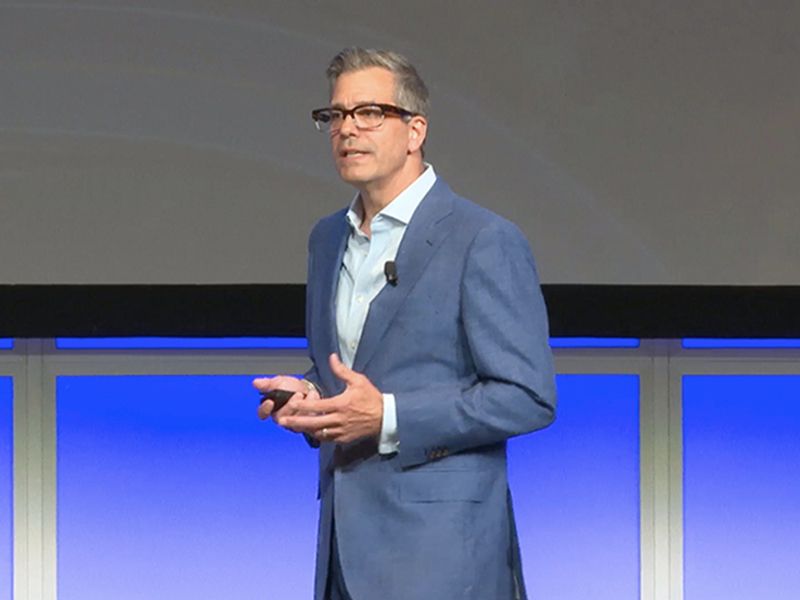
TRAVERSE CITY, Mich. — Automakers are facing significant questions on how to turn their aspirations on electric vehicles and advanced new technologies into marketplace reality.
How to pay for the infrastructure that will be needed to support the industry’s electrification is one of those questions, a group of government policy experts said Wednesday at the Center for Automotive Research’s Management Briefing Seminars here.
“The short answer to these questions is ‘it’s complicated,’ ” said John Bozzella, CEO of the Alliance for Automotive Innovation. “We’ve got to navigate an extraordinarily complex external environment.”
But that complexity means teamwork between the industry and government entities will be “critically important,” industry experts said — especially as the nation navigates the COVID-19 pandemic, a global chip crisis and the dynamic U.S. political environment.
“We need to recognize that no one sector of the economy — no one company, no one policymaker — has all the answers,” Bozzella said. “If we’re going to lead the transformation, we’ve got to make sure that we’re working together.”
With regard to EVs, Bozzella said the industry is going to spend $330 billion over the next five years on electrification. Bozzella’s group represents most major automakers in the U.S. Many of its members have set goals for electrifying their lineups.
At the national level, Susan Helper, senior economist for the White House Council of Economic Advisers, said the Biden administration is committed to building EVs and their components in the U.S. and is working with Congress on consumer tax credits.
But U.S. market share of EVs is only one-third the size of China’s EV market, she said.
On the policy side, Helper pointed to the $1 trillion bipartisan infrastructure bill being debated in the U.S. Senate. The bill would provide $7.5 billion to install electric chargers nationwide.
She called the infrastructure a “down payment” on the industry’s needs.
Gerardo Interiano, vice president of government relations and public affairs at self-driving technology startup Aurora, pointed out that there is not a comprehensive policy approach to autonomous vehicles yet. He called for the federal government to exert its authority through NHTSA to allow companies to deploy the technology much faster and more safely while also working with states and other stakeholders.
“The last thing that I think we want as an industry is a patchwork of legislation and a patchwork of regulations that would prevent us from deploying this technology safely,” Interiano said.
Josh Nassar, legislative director for the UAW, agreed that the transformation will take “a lot of sustained work.”
“We really, really need to remain a leader here,” he said of the U.S. industry. “But we’re not going to remain a leader if we don’t do things differently. Doing things differently means we need Congress to really make big investments, and we need the administration to remain focused on this — not just for a short time, but for the long term as well.”

